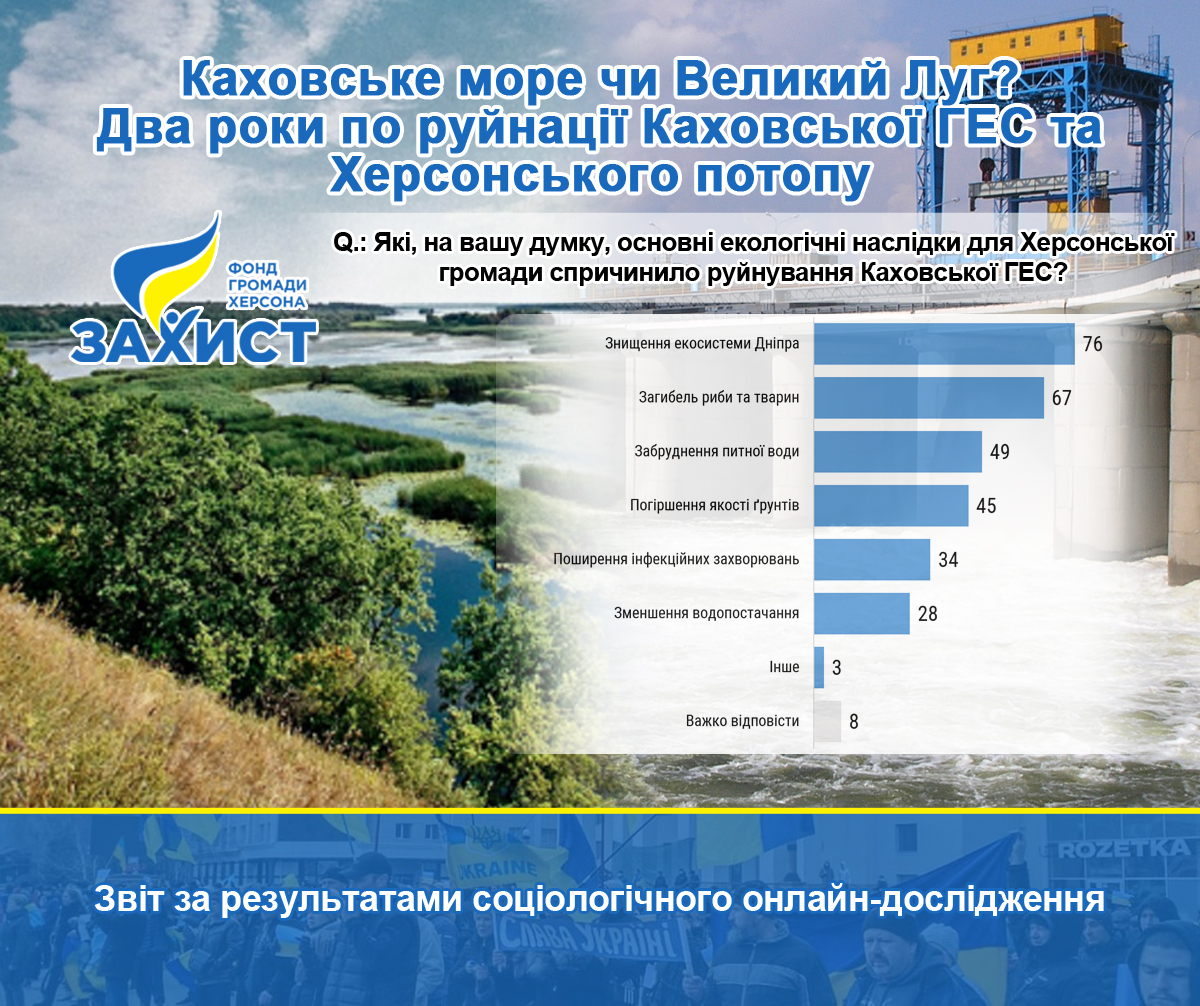Report based on the results of an online survey conducted through a structured interactive questionnaire sent to potential respondents from the research online panel of the Kherson community.
Purpose of the Study:
To understand the attitudes of Kherson residents toward the consequences of the Kakhovka HPP destruction and their vision for the development of the newly formed territories following the disappearance of the Kakhovka Reservoir.
Key Findings:
Even two years after the explosion of the Kakhovka Hydroelectric Power Plant and the resulting flood, Kherson residents continue to be deeply concerned about its consequences. While the level of concern has decreased since the summer of 2023, one in four respondents still identifies these issues as important — especially among those who have been displaced from the community.
76% of respondents consider the destruction of the Lower Dnipro ecosystem to be the most devastating environmental consequence of the explosion. In terms of personal impact, 50% reported losing their summer homes (dachas), and 44% identified stress as a significant outcome.
Kherson residents believe the community will not recover from the aftermath of the Kakhovka HPP destruction and flooding any time soon. 43% think it will take at least ten years, while only 4% say they no longer feel the effects of the disaster.
Public opinion about restoring the HPP has significantly shifted. Back in 2024, the idea of building new hydrotechnical infrastructure — without flooding such a large area again — gained traction. As of 2025, 63% still support this idea, although there is a 4% increase in those who now believe the HPP should not be rebuilt at all.
Two ideas for repurposing the former reservoir area received majority support:
- 61% support building new hydrotechnical facilities (e.g., water intake stations, dams, irrigation canals),
- 53% support creating a natural reserve (e.g., national park, nature sanctuary, etc.).
Many respondents favored both ideas simultaneously, suggesting a strong preference for innovative and ecological solutions rather than recreating the former Kakhovka Sea.
Additionally, 50% believe that Kherson Oblast should expand the area of protected natural zones, especially on lands that are mined or flood-damaged and unsafe for human activity.
86% of respondents are concerned about what is currently happening on the bed of the former reservoir. At the same time, 80% believe the government is not providing sufficient information about the consequences of the dam’s destruction. Also, 81% say there is a lack of transparency and public involvement in discussions about the future of the newly formed territories.
This research was conducted by the Community Foundation of Kherson “Zakhyst”, with the support of the National Network for the Development of Local Philanthropy and GlobalGiving.
Any reproduction or use of this material, including graphic, electronic, or printed formats, is permitted only with proper attribution to the source.




